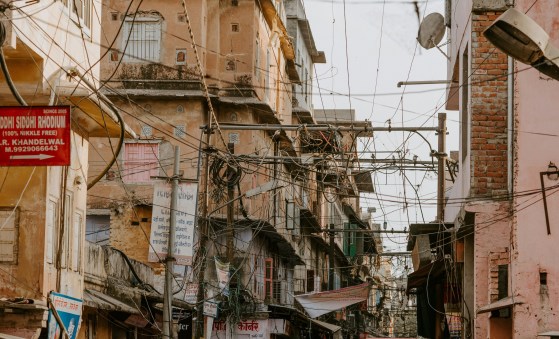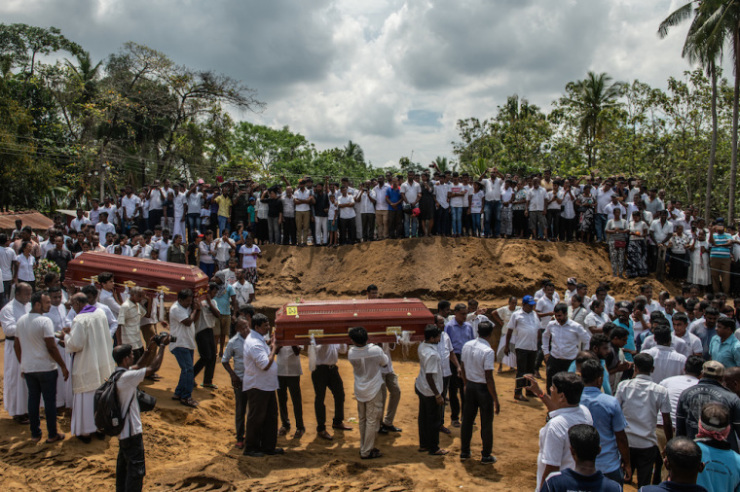
2019 was deadly for many believers across the globe whether they were killed while worshiping peacefully inside their churches or murdered by radicals as the slept at night.
Persecution spanned the religious spectrum as Christians, Jews, Muslim minority groups and Falun Gong were either mistreated by authorities, imprisoned, tortured or killed.
The following pages contain five of the world's most significant persecution stories of 2019.
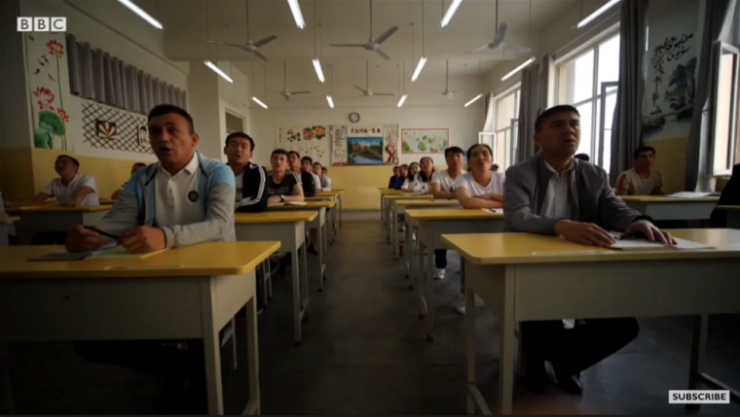
1. Over 1 million Muslims endure concentration camps in China
There was intense international outcry this year over the detention of Uighurs and other ethnic minority Muslims in Western China. Estimates suggest that over 1 million Muslims have been detained in re-education camps throughout China's Xinjiang province.
Although the Chinese government claims these are training centers to educate people who've shown extremist tendencies and denies any mistreatment is going on, U.S. officials have publicly condemned the centers as being nothing more than "concentration camps."
Secretary of State Mike Pompeo accused China of trying to "erase" minority cultures and religions.
Earlier this year, journalists were allowed to tour some of the so-called training centers in Xinjiang. Even though the government claims it's the students' choice to attend, one journalist who toured the facilities said many are enrolled without knowing how long they will be forced to remain there.
Uighurs who are sent to the re-education camps spend many hours a day learning Chinese and studying China's increasing restrictions on religion. BBC journalist John Sudworth said the centers replace "faith and cultural identity with a different loyalty."
"These are places where adults wear uniforms and they don't go home at the end of the day but sleep up to 10 a room sharing a toilet with no idea how many months or years it will be before they can return to their families," Sudworth said after touring select facilities in Xinjiang.
Since 2017, estimates suggest that anywhere between 800,000 to more than 2 million Uighurs and other Muslim ethnic minorities have been detained at camps in Xinjiang.
The treatment of Uighurs in China was prominently featured in the U.S. Commission on International Religious Freedom's 2019 annual report and was even the focus of the report's cover.
Although the Chinese government claims students choose to go to these camps, USCIRF noted that the detention of prominent doctors, professors and businessmen contradicts that claim.
Pompeo has called on other countries to resist China's demands to repatriate ethnic Uighurs to China.
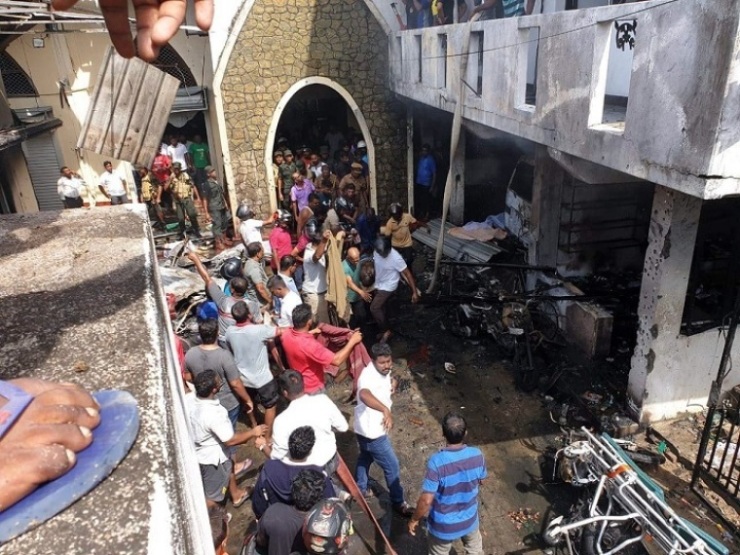
2. Hundreds killed in Sri Lanka Easter bombings
Easter Sunday 2019 was marred by suicide bombings targeting Christians at three churches and three hotels in Sri Lanka.
At least 250 people were killed and 500 others were injured when nine radical Islamic suicide bombers carried out attacks in Negombo, Batticaloa, and Colombo.
Sad stories emerged of family members losing loved ones. It was also said that on the day of the attack, children in Sunday school at the Zion Church in Batticaloa were asked by their teacher how many of them were willing to die for their faith in Jesus. All of the children reportedly raised their hands. Minutes later, the blast occurred that took half of their lives.
In the wake of the bombing, Zion Church Senior Pastor Roshan Mahesan made headlines by announcing forgiveness for the attackers believed to be affiliated with the Islamic extremist group National Thowheeth Jama'ath. The Islamic State claimed responsibility for the attack.
"As the senior pastor of Zion Church Batticaloa, the whole congregation and every family affected, we say to the suicide bomber and also to the group that sent the suicide bomber that we love you and we forgive you," Mahesan said.
Money was raised to help the churches rebuild after the bombings.
New York-based pastor William Devlin, through his REDEEM! nonprofit organization, helped to raise tens of thousands of dollars to help Zion Church.
St. Anthony's Shrine in Colombo was able to reopen in June after an international campaign to help it rebuild.
In July, St. Sebastian's Church in Negombo was reconsecrated and a memorial including the names of the 114 victims killed in the Easter attack was unveiled.
Questions were raised about why the Sri Lankan government did not prevent the attack.
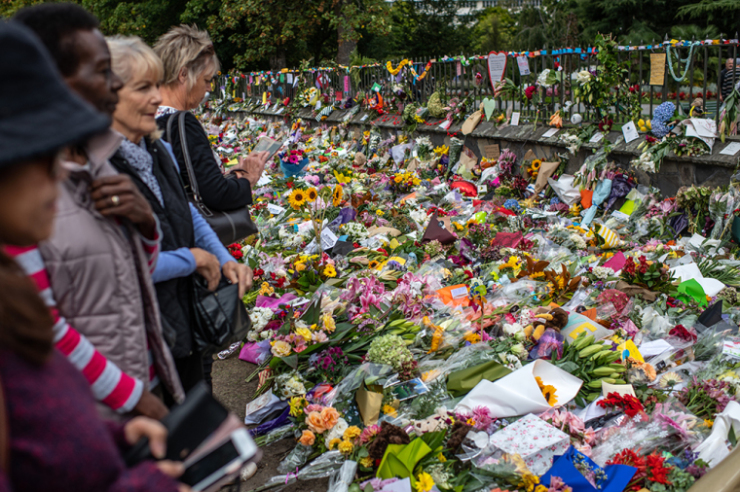
3. Dozens killed in Christchurch mosque shootings
About a month before the Sri Lanka Church bombing, shootings occurred at Linwood Islamic Centre and the Al Noor Mosque in Christchurch, New Zealand.
Fifty-one people were killed while 49 others were injured in the March 15 shootings.
The man accused of the crime is 28-year-old Australian Brenton Tarrant, who appeared to use a GoPro helmet camera to film himself killing the victims. Seventeen minutes of his attack was broadcast on Facebook Live.
Before the attack occurred, Tarrant allegedly posted a 73-page "manifesto" titled "The Great Replacement."
In a section titled "The White Genocide," he allegedly wrote that mass migration will destroy the culture.
"Thus, before we deal with the fertility rates, we must deal with both the invaders within our lands and the invaders that seek to enter our lands," he allegedly wrote. "We must crush immigration and deport those invaders already living on our soil. It is not just a matter of our prosperity, but the very survival of our people."
In June, the mass shooter pleaded not guilty to all charges against him, which include 51 counts of murder, 40 counts of attempted murder and one count of terrorism. His trial is set to begin next June.
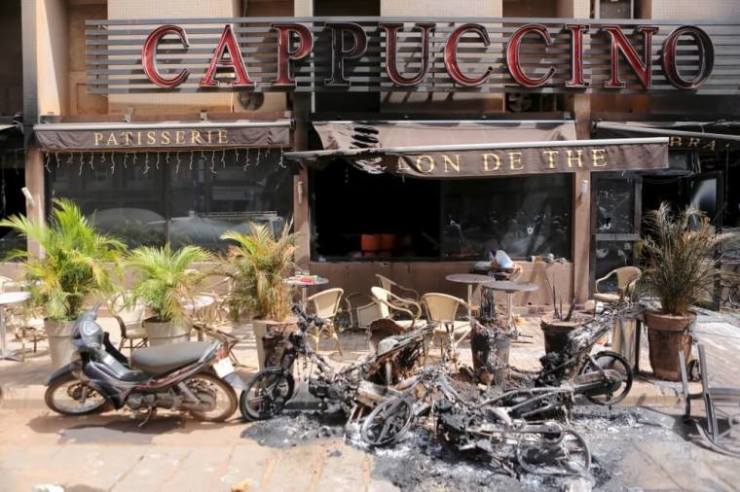
4. Escalation of Islamic extremism in Burkina Faso
What was once thought of as a peaceful nation, Burkina Faso is now in the midst of a full-blown refugee crisis. Hundreds of thousands have been displaced and hundreds have been killed as a result of the increasing rate of extremist attacks, some of which have targeted worshiping Christians.
On Dec. 1, at least 14 people were killed and several others injured when gunmen stormed a church in the eastern village of Hantoukoura. A security source told news outlets at the time that the gunmen "execut[ed] the faithful including the pastor and children."
The Dec. 1 church attack is among many attacks carried out by suspected Islamic extremists groups in Burkina Faso and across the Sahel region of Africa in 2019.
Extremist attacks in Burkina Faso have been on the rise since 2016 but have escalated exponentially in 2019.
According to the Africa Center for Strategic Studies, the total number of violent episodes in Burkina Faso by the mid-point of 2019 was more than double that of the violent episodes reported for all of 2018.
By mid-2019, the center reports, there had been 191 episodes of violence and at least 324 fatalities.
According to the center, attacks have been primarily carried out by three different groups. Those groups are the Islamic State in the Greater Sahara, the Macina Liberation Front, and Ansaroul Islam.
Christians in Burkina Faso have expressed fear that their communities could be eradicated as they have been horrifically targeted in addition to the extremists' attacks against police and military.
In May, gunmen attacked two Catholic communities. In one attack, gunmen are said to have killed a pastor and five churchgoers. In another attack, four Catholics were said to have been killed while participating in a Marian procession.
In April, another pastor and five churchgoers were killed in the town of Silgadji.
The United Nations reported in December that nearly one-third of the country's population is being affected by the "unprecedented protection crisis" as communities along Burkina Faso's borders with Mali and Niger are facing "spiraling insecurity and the erosion of access to basic services."
The U.N. reports that Burkina Faso has become one of the "fastest-growing displacement crises in Africa" as the total of displaced persons has increased 934 percent to 486,000 from January to October.
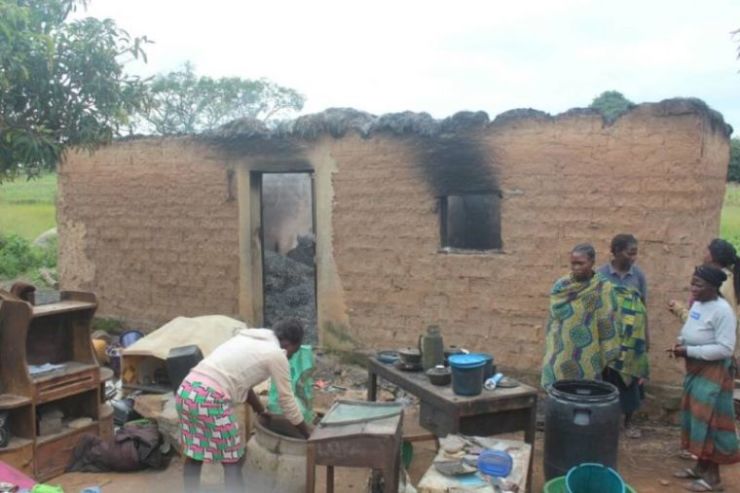
5. Fulani radicals attack in Nigeria, Cameroon
Attacks carried out by radical Muslim Fulani herdsmen in Nigeria continued in 2019 as hundreds of Christians in farming communities were killed in the Middle Belt.
The U.K.-based nongovernmental organization Humanitarian Aid Relief Trust, founded by Parliament member Baroness Caroline Cox, issued a report from a fact-finding mission in November estimating that at least 1,000 Christians have been killed since January by Fulani radicals and Boko Haram.
The organization reports that since 2015, at least 6,000 Christians have been killed and thousands have been displaced from their villages.
Although farmer-herder clashes have existed for decades, scarcity of land has resulted in deadlier consequences. Christian advocates have also accused herdsmen attackers of being "radicalized" and insist that religion plays a factor.
Fulani are the world's largest nomadic people group of over 20 million people across West Africa.
In early 2019, there was an increase in attacks carried out in Kaduna state in Nigeria after local Christians were accused of a reprisal attack on a Fulani settlement that killed as many as 131 in February.
According to the HART report, there were five major attacks against Christian communities allegedly carried out by Fulani radicals in Kaduna between January and November, resulting in 500 deaths.
The human rights NGO Jubilee Campaign sent a report to the International Criminal Court in July arguing that the "standard for genocide" has been reached in Nigeria. The organization chronicled 52 Fulani militant attacks between the start of 2019 and June 12.
"Why are there 180,000 [internally displaced persons] in Benue state? Why are there nearly 1 million IDPs from the northeast of Nigeria?" Jubilee Campaign Director Ann Buwalda said earlier this year. "It isn't only Boko Haram. It is also Fulani herdsmen and militants that are behind these attacks."
In neighboring Cameroon, Christian communities have also been targeted by radical Fulani radicals.
Efi Tembon a native Cameroonian who runs the Oasis Network for Community Transformation, told The Christian Post this year about several attacks alleged to have been carried out by Fulani in the civil war-stricken Anglophone regions.
Tembon said locals have accused government actors of encouraging Fulani radicals to carry out attacks against separatist-supporting farming communities.
Some communities that were victimized by such attacks this year were in the Wum area of Southern Cameroon, which is about 75 percent Christian, according to Tembon.
In separate attacks, two Bible translators — Benjamin Tem and Angus Fung — were killed.
"There is a war of independence going on in the area and so the local population supports independence for southern Cameroon," Tembon explained. "And these attacks toward the local population is not just by Fulanis, the military is also attacking and burning homes. So the military is working hand-in-hand with the Fulanis. They have actually armed some Fulanis to help them fight the local population."
Courtesy of The Christian Post.
